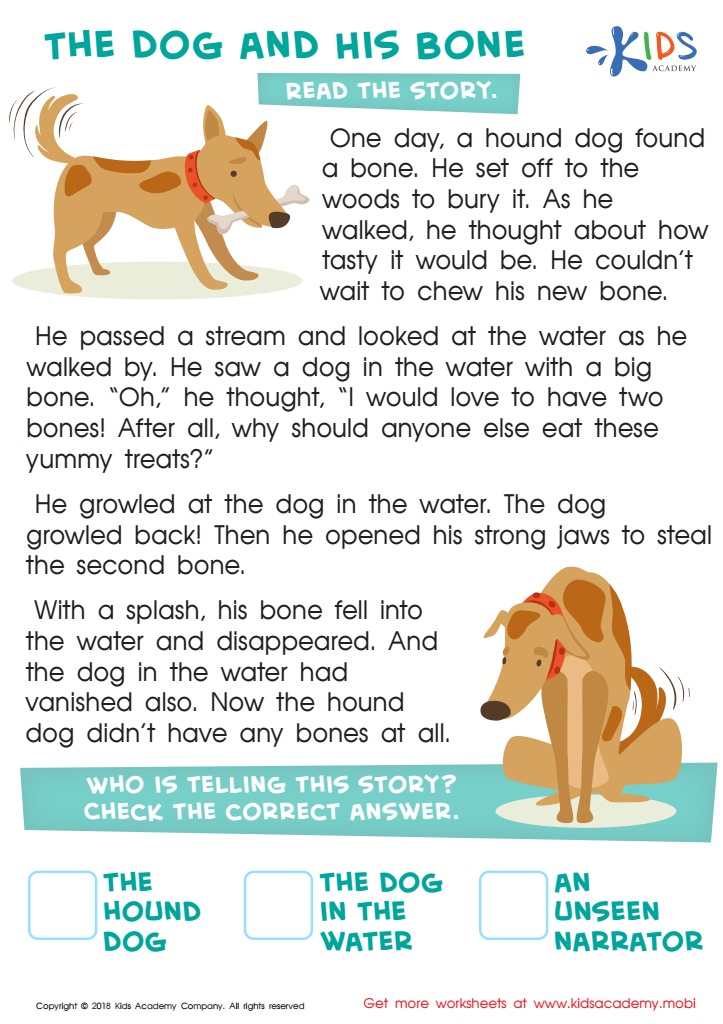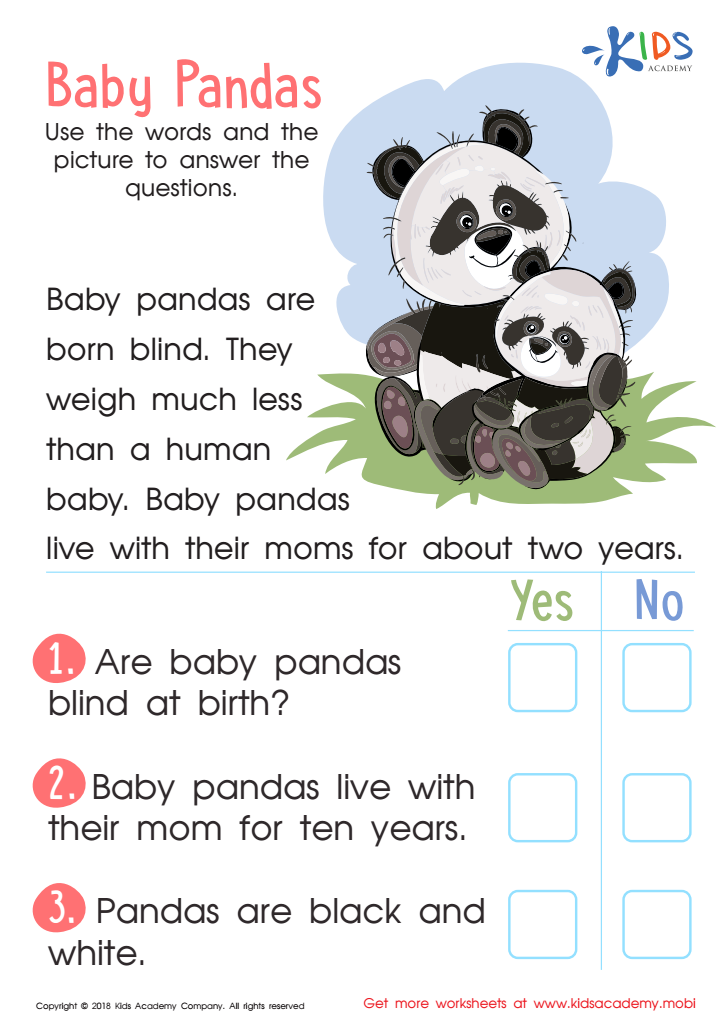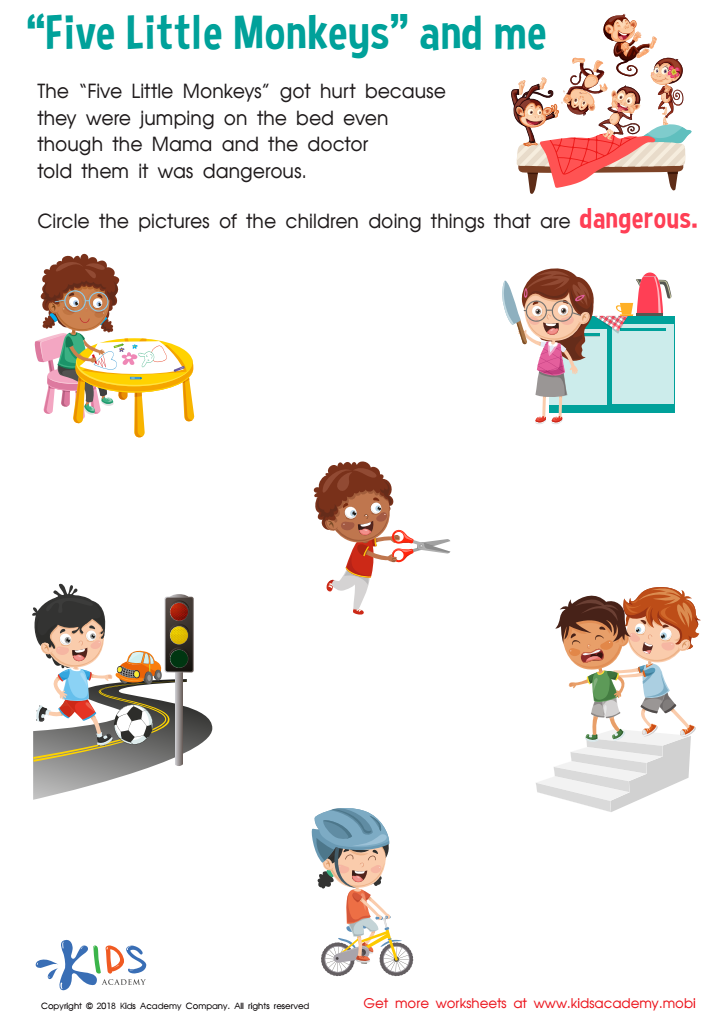Number Recognition Reading Comprehension Worksheets for Ages 4-9
4 filtered results
-
From - To
Explore our engaging Number Recognition Reading Comprehension Worksheets, specially designed for children aged 4-9! These interactive resources aim to enhance number recognition alongside reading comprehension skills. Each worksheet features vibrant illustrations and age-appropriate content, making learning enjoyable and effective. Students will practice identifying numbers through stories and exercises that promote literacy and mathematical understanding. Our worksheets encourage critical thinking and help children make valuable connections between numbers and text. Perfect for homeschooling, classroom activities, or extra practice, these worksheets provide an excellent foundation for early learners. Boost your child's confidence and skills with our educational, fun-filled resources today!


The Dog and His Bone Worksheet


More Octopus Facts Worksheet


Baby Pandas Worksheet


Five Little Monkeys and Me Worksheet
Number recognition and reading comprehension are crucial skills for children aged 4-9, forming the foundation for their future academic success. First, number recognition enables kids to understand mathematical concepts, fostering problem-solving abilities and logical thinking. As children learn to identify and understand numbers, they also develop essential skills like counting, comparing quantities, and recognizing patterns, all of which are important for daily life activities and more advanced mathematical learning later on.
On the other hand, reading comprehension is vital for language development and overall literacy. At this age, children are not only learning to read but also reading to learn. A strong grasp of reading comprehension allows children to comprehend stories, interact with written information, and develop critical thinking skills. This combination greatly enhances cognitive abilities, vocabulary expansion, and emotional intelligence.
For both parents and teachers, nurturing these skills can set a strong educational foundation, enabling children to engage with various subjects confidently. Moreover, promoting number recognition and reading comprehension fosters a love for learning, encouraging children to explore and inquire. Ultimately, supporting these abilities at such an early age contributes to well-rounded individuals who can think critically and navigate the complexities of the world around them.

 Assign to My Students
Assign to My Students




.jpg)











